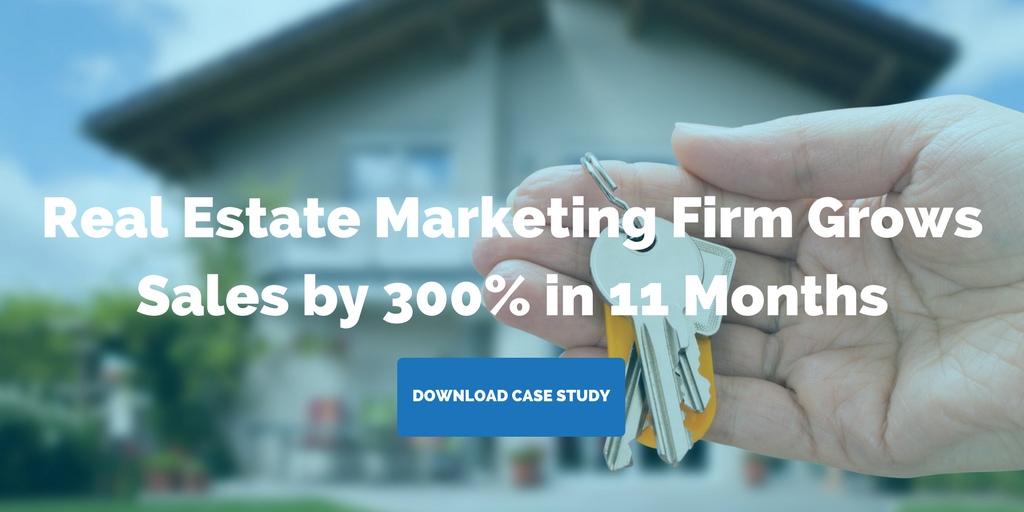Posts Tagged "Facebook"

New Facebook Ad Policy Means Big Changes for Real Estate Marketers
As of September 1, a new Facebook ad policy surrounding housing ads is in effect. Will these changes mean an end to real estate marketing on the social platform? Here’s what you need to know.
Facebook is no stranger to the limelight these days. From Cambridge Analytica and other confidence-shaking scandals to major changes to business pages, the only constant is … change. But this month’s new ad policies for special categories — including housing, employment, and credit — is set to have a major impact on real estate marketers.
Facebook settlement
To understand the changes and how they’ll impact marketers, we need to start from the beginning. On March 19, 2019, the National Fair Housing Alliance (NFHA), Communications Workers of America (CWA), and several regional fair housing organizations settled civil rights claims against Facebook. The NFHA and other organizations claimed that policies “unlawfully enabled advertisers to target housing, employment, and credit ads to Facebook users based on race, color, gender, age, national origin, family status, and disability.”
Changes from the settlement
The following rules are in place for housing (and employment and credit) ads as of September:
- Facebook will establish a separate advertising portal for creating housing, employment, and credit ads on Facebook, Instagram, and Messenger that will have limited targeting options to prevent discrimination.
- Facebook now has a separate page where users can search and view all housing ads, regardless of whether users have received the housing ads in their News Feeds.
- All advertisers will be required to certify that they are complying with Facebook’s policies prohibiting discrimination.
- Facebook will no longer allow ZIP code targeting. All ads must have a minimum 15-mile radius of a specific location.
- Facebook’s Lookalike Audience tool will no longer consider gender, age, religion, location or Facebook groups.
What the new Facebook ad policy means for real estate marketers
Time to put on our thinking caps! While we believe real estate marketers weren’t intentionally discriminating against anyone, microtargeting has become a major asset in Facebook’s paid digital advertising. Microtargeting allowed real estate marketers to segment potential customers, helping decide who marketers should target and create personalized ads for those leads. Without the ability to microtarget audiences, real estate markets will have to shift their ad strategy.
A flicker of hope
There could actually be some benefits from these new policy changes for real estate marketers. Facebook is creating a new tool that allows users to search all housing ads for rentals or sales (or finance of housing or for real estate-related transactions, such as appraisals and insurance). This tool could help boost brand awareness by making ads more widely available to audiences and increase organic reach for brands.
The jury is still out
Though Facebook is still a powerhouse for digital marketers (don’t forget the platform has over 2 billion active monthly users), time will tell how these Facebook ad policy changes will impact real estate marketing. In an age when customers are demanding more personalized, custom content, off-target ads seem like a step in the wrong direction. Tick, tock.
Related posts:
- 6 Social Media Don’ts for Property Management Companies
- Infographic: 5 Tips for Using Facebook Live for Real Estate Brands
- 3 Ways to Boost Your Real Estate Marketing with Video
Posts Tagged "Facebook"

Top 5 Real Estate Marketing Tactics
Here are 5 real estate marketing tactics to increase website traffic, user engagement and leads.
As a real estate marketer, you’re always looking for ways to find more clients and grow your business. You already understand the need for a marketing strategy. But sometimes it’s challenging to identify the most effective marketing tactics to reach your audience.
The following are 5 real estate marketing tactics that are especially useful for engaging with prospects for luxury development projects.
1. Use AR and VR
Images are central to all types of digital marketing but they’re absolutely crucial when it comes to real estate. If you want to showcase the best of your luxury properties, it’s essential to display compelling, high-quality photos. You can make your imagery stand out even more by using the latest technology such as AR and VR.
It’s now possible to give prospects a virtual tour of your properties using virtual reality (VR) or augmented reality (AR). VentureBeat asks if such technology will mean the end of open houses. There’s still a lot to be said for giving people live tours of properties, of course. But VR and AR can give non-local prospects (or busy nearby ones) a great introduction to your luxury properties. Unless you’re experienced with photography, hiring a skilled real estate photographer can be a worthwhile investment.
2. Add Distinctive Features to Your Properties
Customers in the luxury real estate market like to see unique amenities that set a property apart from others. Quality photos are, for obvious reasons, the foundation of real estate marketing. As already noted, you can increase engagement by using creative and high-tech methods such as VR and AR. It also helps to have interesting and unique items to display in your photos (as well as videos).
Images of eye-catching details, decor, and amenities make your property memorable. Wellness amenities, for example, are quite popular in any type of luxury development. This includes yoga studios, meditation areas, tranquility-inducing artwork, and comfortable seating areas, off of which can be featured in your marketing. You can add many such elements without going to great trouble or expense. Repurpose existing spaces for a quick shot at little cost.
3. Use Postcards for Website Traffic
Real estate professionals generally focus on digital marketing today — and for good reason. Digital ads, your website, social media, and email are the most direct and economical ways to reach your audience. This doesn’t mean you should completely ignore traditional, offline methods. Direct mail, especially postcards, can be an effective tool to supplement your digital efforts. Postcards are highly visible and relatively cheap to send. You can use them to send prospects to your website.
4. Create Stories on Instagram or Facebook
The Stories feature on Instagram and Facebook lets you create targeted content for your luxury development prospects. This is spontaneous, short-lived content that your followers can see for 24 hours. You can use Stories to provide quick tours of properties, to discuss real estate trends, or to give advice to potential buyers or sellers. You can also create engaging polls and contests on Instagram and Facebook, and use Stories to promote them. If you want to amplify your reach, leverage paid advertising.
5. Tap Into the Power of Video Marketing
Videos are one of the best ways to reach your real estate prospects. People are consuming more and more videos, on YouTube, other video sharing sites such as Vimeo websites, and on social media. You can use videos to give tours of your properties or to discuss the real estate industry in general. There are several key benefits to video marketing for real estate. You can showcase properties, establish your credibility as an expert, and drive traffic to your website. Once you create a video, you can use it in multiple ways: upload it to YouTube, post it on your website, share it on social media, etc.
These are some of the best tactics to grow your luxury real estate business. And they all work even better in unison. A variety of methods build traffic and send prospects to the most appropriate place. Digital marketing is always evolving so it’s important to stay current with the very latest trends and tactics.
Related posts:
- Top 5 Real Estate Marketing Influencers
- The Role of Social Media in Luxury Real Estate Marketing
- 4 Real Estate Marketing Trends 2018
Posts Tagged "Facebook"

5 Social Media Stats for Real Estate Marketers
Social media is a natural fit for real estate marketing. Here are five social media stats that prove your real estate brand needs to be active on social media.
Highlights:
- 3.5 billion people will use social media networks this year.
- Real estate marketers can take advantage of detailed targeting available through Facebook.
- Real estate marketers who are succeeding on social media are finding innovative and creative ways to relate to users and showcase their property.
Social media has changed the world as we know it. From connecting with old friends to up–to–the–minute news coverage, social platforms are a constant in 2019. In fact, it’s estimated that 3.5 billion people will use social media networks this year.
With those kinds of numbers, it’s easy to understand why businesses are heavily investing in digital marketing on social platforms. Consider some more social media stats: a recent survey found that 73% of small businesses are investing in social media marketing.
We’ve talked a lot about the importance of social advertising and we’re sticking by it. The combination of paid and organic advertising on sites like LinkedIn and Twitter can help get your property in front of the right audiences.
We know that social media posts are time–consuming, whether you’re creating original content or curating posts. This can play a big role in marketers sticking to more traditional advertising methods. But if you’re looking to target specific audiences and run ads that speak to them directly, the social media stats speak for themselves.
Here are 5 social media stats and how they can affect your digital marketing strategy.
1. 68% of U.S. adults are Facebook users
Despite all the headlines in the last year, Facebook is still the most popular social media platform out there. And marketers shouldn’t ignore this platform when advertising properties. Aside from Facebook’s popularity, real estate marketers can take advantage of detailed targeting available through the social platform’s paid advertising options. After determining the goal of your campaign, you can set key targeting options and make sure your ads are getting in front of the right audience.
2. Over 90% of Millennials use social media (and 77% of Generation X’ers)
Millennials use social media more than any other age group and the majority of them access social media on their phones. This is crucial information for real estate marketers trying to understand the buyer’s journey and determining what platforms will work best for their audience. For example, are they trying to lease apartments near a college or university? Knowing that Instagram is the fastest growing platform or that messaging apps are the most popular form of communication amongst millennials is key.
3. An average of 143 minutes a day is spent on social networks and messaging
According to a survey by Digital Information World, internet users are now spending an average of 2 hours and 22 minutes per day on social networking and messaging platforms. And that’s a lot of opportunity for marketers to showcase properties. Don’t miss out on organic (and paid) searches for properties. Make sure to post your blogs, photos, and virtual tours to your social media pages to expand your reach.
4. 73% of marketers believe that their efforts through social media marketing have been‘somewhat effective’ or ‘very effective’ for their business
Social media is one of the most cost-effective ways to market your property, engage with audiences, and establish brand loyalty among customers. Tracking your social media efforts is key to optimizing your strategy and tweaking your plan to increase performance. Gauge the effectiveness of your social media strategy using these data points that reflect your digital marketing objectives.
5. 54% of social browsers use social media to research products
Social media is all about engagement. Users don’t want to engage with brands that are pushing their properties. Users want informative, interesting, and, yes, even fun content. Real estate marketers who succeed on social media are finding innovative and creative ways to relate to users and showcase their property so that social browsers are drawn to your content.
These social media stats prove excelling at social media could pay off for your real estate brand. What does it take to become a whiz? Keep reading our blog or contact us to learn more.
Related posts:
- How to Increase Leads with Chatbots
- Infographic: Best Video Distribution Channels for Real Estate Marketing
- 5 Effective Ways to Use Instagram for Your Luxury Real Estate Brand
Posts Tagged "Facebook"

Top 10 Social Media Posts 2018
Here are Fronetics Real Estate’s most viewed social media marketing posts from the past 12 months.
We all know real estate marketing is increasingly intertwined with social media. These platforms are extremely powerful ways to engage with potential buyers and renters, and to reach new audiences. At Fronetics Real Estate, we write a lot about how to use social media for real estate marketing.
These are our top 10 social media posts from 2018.
1. 10 Social Media Statistics for Real Estate Marketers 2018
No matter what happens, we can always count on one thing to stay the same: Social media will always be changing. 2018 has been a remarkable example of that thus far, particularly in regard to platforms like Facebook. Every so often, we like to take a step back and look at what the data is telling us about where social media is heading and what that might mean for real estate marketers. Read more.
2. How Will Facebook Marketplace Housing Affect Real Estate Marketers?
If you’re a real estate marketer, Facebook’s newest foray into the social marketplace is likely to impact your strategy. In November, the ‘Book announced it would begin allowing users to search for housing rentals and sales on its Marketplace platform. For those who are unfamiliar, Marketplace is Facebook’s answer to Craigslist — a platform that lets users buy and sell items near them. Read more.
3. Social Media Trends for 2018 Real Estate Marketers Need to Know
If there’s one thing real estate marketers can be sure of in the coming year, it’s that social media will continue to dominate the marketing landscape. Social media presents tremendous opportunity, particularly if you’re aware of upcoming trends. Read more.
4. How to Use Social Media Hashtags in Real Estate Marketing
You’re likely to be vaguely aware of hashtags, at least in your personal social media life. But perhaps you’re not intimately familiar with how they can play into your real estate marketing strategy. Whether you #lol at it or not, using social media hashtags wisely can actually be a major boon to your social media marketing efforts. Read more.
5. A Visual Guide to Social Media Posting Frequency for Real Estate
“Content is king, but distribution is queen and she wears the pants.” These are wise words from BuzzFeed’s Jonathan Perelman, indicating that creating interesting and pertinent content is just half the battle. To reach your target buyer or tenant, raise brand awareness for your property, and drive sales, your content needs to be delivered consistently over time, at the right time, and on the right platform. Read more.
6. 4 Things to Do in Light of Facebook News Feed Changes
Mark Zuckerberg once again rocked the world on Jan. 11 — at least for businesses — when he announced that the Facebook News Feed was evolving to include less public content, meaning content from Pages of businesses, brands, and media. The algorithm will now prioritize posts from friends and family (over public posts) and those that “spark conversations and meaningful interactions between people.” Read more.
7. Should I Be Using Facebook Carousel Ads?
Facebook carousel ads offer a highly visual and engaging way to promote your properties. Not only that, Kinetic Social recently found that carousel ads are up to 10 times more effective than static sponsored Facebook posts at driving traffic to advertisers’ websites. And if that’s not enough, they boast a 72% higher click-through rate than single-image mobile app ads. Read more.
8. 5 Real Estate Instagram Accounts You Should be Following
Instagram remains an emerging platform for real estate professionals, and, given its overall popularity, it’s puzzling that it hasn’t taken over the real estate marketing world. With the majority of real estate searches beginning online, social media is an ideal way to showcase listings. Read more.
9. Must-Know Social Media Strategies for Real Estate
Real estate is a people business. That’s why you should leverage a marketing tool that is also all about people: social media. If you have not begun developing social media strategies for your real estate business, now is the time to get started. Consider for a minute that in 2017, 81% of Americans had at least one social media profile. And the numbers are projected to continue skyrocketing: by 2020, 200 million people just in the U.S. are estimated to be on social media. Read more.
10. Measure Social Media Success in Terms of Potential, not Dollar Amount
One of the trickiest things about implementing a social media strategy is that social media success can be difficult to measure. While most real estate professionals acknowledge that a social media marketing presence is important, it’s hard to make a case for resources when you can’t precisely quantify the value in terms of dollar amount. Read more.
Stay with us in 2019 for the latest on social media real estate marketing. Which posts will you find the most useful and interesting?
Related posts:
- Paid Digital Advertising: A Beginner’s Guide for Real Estate Marketers
- 4 Steps to Building a Successful DIY Content Marketing Strategy for Real Estate
- Start Your Property’s Social Media Program in 6 Steps
Posts Tagged "Facebook"

3 Ways to Boost Your Real Estate Marketing with Video
Video marketing is no longer the wave of the future—it’s now. And it’s one of the best and most cost-effective ways to grow your social media audience and generate leads.
If you’re a real estate marketer, you’re probably aware that one of the biggest industry trends in 2018 is the growing prevalence of video. Recent research from Social Media Examiner indicates that not only do nearly two-thirds (63%) of marketers use video content in their social media marketing, but 77% plan to increase video content within the next year.
These days, most real estate searches start online—in fact, according to RESAAS, 67% of the real estate buyer’s journey is now done online. Since video is the most popular and most widely shared form of online content right now, it’s key to creating a positive first impression, and converting leads.
Here are three ways that you can use video to give your real estate marketing efforts a boost.
Show you know the area using real estate marketing with video
Whether your properties are rural, urban, or suburban, displaying deep knowledge of your location and community is crucial to cultivating credibility. You can use real estate marketing with video to demonstrate your local credentials. Jason Hsiao, Chief Video Officer and Co-Founder of Animoto, suggests that “there’s no need to hire a team of videographers or invest in expensive equipment—a simple neighborhood overview or market update can demonstrate your expertise.”
For example, Brothers Commercial Brokerage of New Jersey used Animoto to create a Facebook video detailing the history of a local building, tapping into a sense of nostalgia and pride of place. It received 14,000 views, as well as 129 shares, and helped engage a new segment of potential buyers and renters.
Up your social media game
Professionalism on Facebook and Instagram is all about presentation and finding the right balance of appealing to the personal, while maintaining a streamlined image for your brand. Effective use of video can go a long way to improving your social media presence. Creating videos, like the one Brothers Commercial Brokerage used, is cost-effective and prime fodder for sharing online.
Instagram Stories lets you post videos in small, 15-second increments, and can be an ideal platform for quick video tours of units or properties. Because of Facebook’s recent newsfeed changes, your best bet is to upload videos directly to Facebook’s platform, rather than sharing YouTube or other links.
Establish your credibility and build your brand
We live in a highly visual world, particularly when it comes to social media. Real estate marketing with video is an immediate and effective way to reach your audience and show them what makes your brand and properties special. “On social media, where competition is loud, video helps your brand cut through the noise and stay ahead of the curve,” says Hsiao.
Video is an ideal way to connect with your market, establish your credentials, improve your social media engagement, drive traffic to your website, and generate leads. And best of all, videos don’t require a large financial investment, just some planning and creativity. Fuel your real estate marketing with video, starting today.
Related posts:



